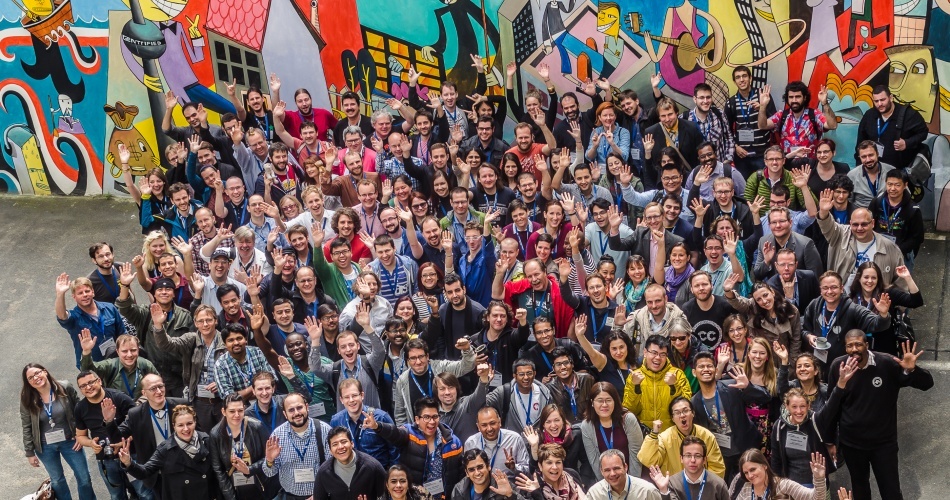
Wikipedians from all over the world gather at the 2015 Wikipedia Convention in Berlin. The Foundation has supported Wikipedia since 2008.
Note
Some grantees and grant projects originally funded through this program continue to be supported through the Public Understanding - Special Initiatives program.
Program Goal
To harness advances in digital information technology to facilitate the openness and accessibility of all knowledge in the digital age for the widest public benefit under fair and secure conditions.
Strategy
- Early grantmaking in this program focused on support of institutions—most notably the Library of Congress but also other major libraries, archives, and museums—digitizing collections affordably and under high-quality standards
Focus then shifted to pooling collections, interoperability, access, and finding a way to get these digitized materials to the public, primarily through the establishment of the first-ever nonprofit, professionally curated national digital library, an alternative to commercial enterprises. Initial grants focused on the Internet Archive, the Open Content Alliance, and Open Knowledge Commons as public consortia that could oversee these efforts.
-
Beginning in 2008, a series of major grants to the Wikimedia Foundation has helped Wikipedia scale up, improve accuracy, and enhance credibility as it became the largest encyclopedia in human history and one of the top 10 web sites in the world with over half-a-billion visitors monthly. The Foundation continues to help Wikipedia, a model of open, collaborative text production available in over 290 languages, fulfil the original ideals of the World Wide Web to democratize knowledge and education for the benefit of all.
-
Beginning in October 2010 and culminating in April 2013, a series of pioneering grants to the Berkman Center at Harvard supported the successful creation, development, and launch of the Digital Public Library of America (DPLA), named one of the 50 Best Web sites of the year by Time magazine in its first month. DPLA now has over 15 million items from 2,000 contributing institutions across the country as well as links with Europeanna and other national collections. Grants now support its continued improvement, expansion, and progress toward financial independence.
-
Other grants in this program support research on copyright obstacles and working with publishers and author groups to make digital material available to the largest number of people under reasonable terms and conditions.
News
See All-
The Boston Globe
Libraries demand a new deal on ebooks
-
Stanford University
First Workshop on the World Wide Voice Web
-
New America
Public Libraries and the Pandemic: Digital Shifts and Disparities to Overcome
-
DPLA
DPLA + Wikimedia: One Year In
-
Knowable Magazine
How has the pandemic influenced public attitudes toward science?
-
DPLA
DPLA now offering ebook creation service
Resources
-
The Digital Public Library of America
The nation's first digital library.
Visit Site -
Open eBooks Initiative
The DPLA, Publishers, and the White House come together to bring free literature to children in need.
Visit Site -
Be a Wikipedia Editor
The fifth largest website in the world needs women and minority voices.
Visit Site -
RightsStatements.org
A guide to help share the world's cultural heritage.
Visit Site